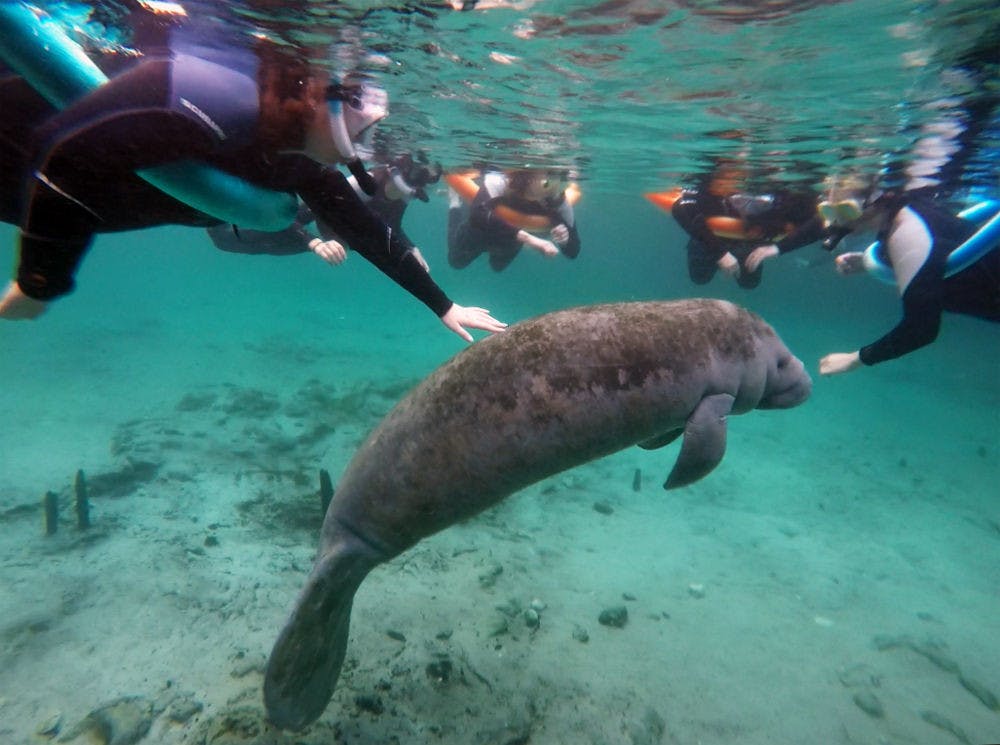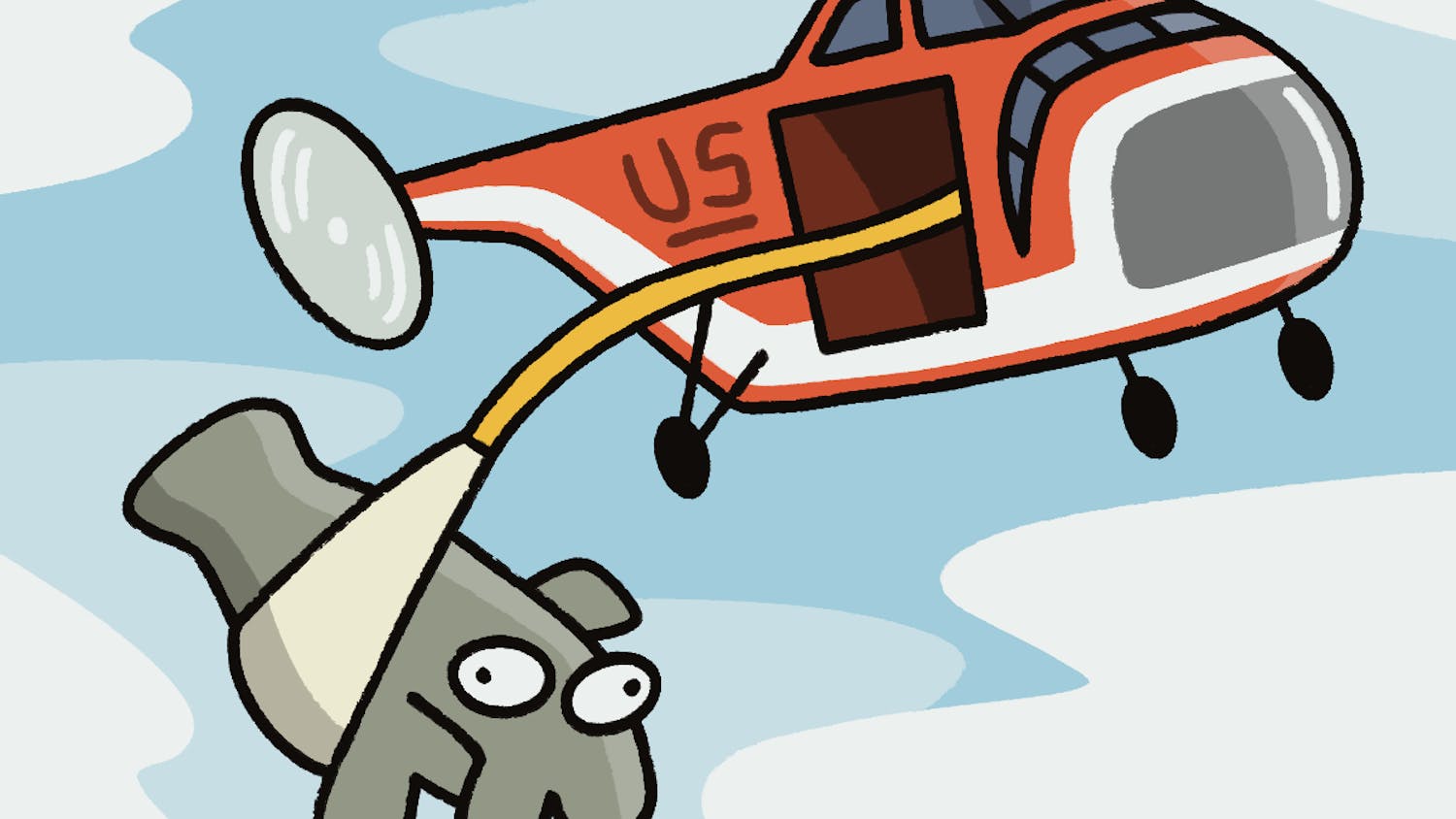The state of Florida is saying mooooove over for sea cows, which swarmed a state spring on Monday.
Three Sisters Springs, a part of Crystal River National Wildlife Refuge, is a popular spot for manatees in the winter. Robert Bonde, a research biologist with the Sirenia Project U.S. Geological Survey in Gainesville, said the last aerial survey of Crystal River counted 700 manatees — a jump from the 120 there were when he first joined the organization.
“We’ve advanced to the point where manatees are worth more to us alive than dead because they’re spectacular, and there’s big ecotourism in Crystal River and other places,” Bonde said. “If we do give a little bit of sacrifice and protect them, they’re going to reward us by being around for future generations. With a manatee, you can love them to death, and they’ll just love you back. It’s incredible.”
The Florida Fish and Wildlife Conservation Commission regulates the minimum flows of springs, access for manatees to the springs and boat speed limits. They also designate safe havens for the animals, said Scott Calleson, a biological scientist with the commission.
In order to rent a boat or swim in the water at Crystal River, visitors are required to watch a “Manatee Manners” video to know the rules that must be followed when interacting with the sea cows.
“Manatees are smart, they’re curious, they want to investigate their environment. They’re like puppy dogs. They like to be scratched and (pet),” Bonde said. “It’s not against the law to touch manatees, but it is against the law to change their behavior and harass them.”
Bonde and other biologists that work on the U.S. Geological Survey’s Sirenia Project conduct health assessments on manatees in Crystal River to see what the manatee population looks like as a whole.
But manatee care isn’t just for state officials. The Wildlife Society at UF helps assess the sea cows.
The organization helps monitor breathing as manatees are taken out of nets, scanned for chips or tags and moved to another beach to conduct more health assessments, wrote co-Vice President Elizabeth Sanchez in an email.
“We were able to help or observe as they drew blood, tagged them, weighed them, and did a number of other assessments,” she said.
The next manatee health assessment will take place Feb. 18 and 19 in Crystal River.
“They live in the water, and it’s almost like they live on another planet,” Bonde said. “They’re two different worlds, but it’s the same planet…”
[A version of this story ran on page 1 on 2/6/2015 under the headline “Springs see sea cow surplus, remind visitors of regulations"]
A group of UF students from Dr. Steven Johnson’s Wildlife of Florida class pet a manatee at Three Sisters Springs on Crystal River on Jan 23. Students learned first-hand that some manatees approach humans in order to be scratched and rubbed.






